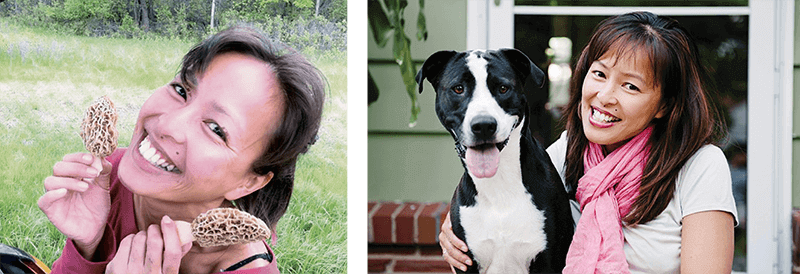At 45, Justine Lee is now a superstar in veterinary medicine, having co-created (with Dr. Garret Pachtinger) what is arguably the leading online platform for continuing education for veterinary professionals, called VETgirl, which is now celebrating its fifth anniversary.
VETgirl (vetgirlontherun.com) offers webinars, educational videos and podcasts. While Lee won’t disclose exact numbers, nearly two million have downloaded the free podcasts, from 170 countries. Sponsored webinars are also offered at no charge. And on Facebook, the VETgirl page has grown organically to nearly 157,000 followers.
“Our goal was kind of simple and that hasn’t changed,” says Lee. “For busy veterinarians and technicians, we felt there isn’t always a need to travel for CE and to read those journals that pile up can be impossible. CE can be as close as your phone, iPad and may happen in the comfort of your home.”
And the CE itself isn’t extravagantly theoretical. “It’s all about what people can really use in practice,” Lee says.
One example is that when the H3N2 strain of canine influenza virus (CIV) hit, Lee was one of the first to work hard to sort fact from fiction when little was really known about how quickly the virus may spread, how it might spread (such as on objects, fomites), and what clients might do to avoid flu, and has been a proponent of vaccination.
Lee notes that CIV is likely underdiagnosed, maybe significantly so. Most clients don’t want to pay for the lab work, and veterinarians know how to treat upper respiratory. Often based on symptoms, the assumption is CIV. So, the lab work isn’t “pushed.”
“I wish more veterinarians would then diagnose as canine infectious disease complex—not bordetella, or even CIV if it’s really unknown. And we’ve learned that many dogs, or some dogs, have two ideologies: H3N2 and parainfluenza, for example,” Lee continues.
These are more reasons to vaccinate for H3N2, or arguably the vaccine for H3N2 and H3N8. Lee also supports the notion that dog flu should be added to the list of mandated vaccines for dog kennels and dog daycare. And encourages veterinary practices that board dogs to think about it as well. “Bottom line, dogs should be protected,” she says.
Lee is a great teacher—and teaches countless thousands in her online classroom annually. But she doesn’t consider herself as such. After all, she’s Minnesota modest, and Minnesota nice.
Lee isn’t originally from Minnesota. She spent most of her life in the East, growing up in New Jersey, going to vet school at Cornell University College of Veterinary Medicine in Ithaca, NY, interning at Angell Animal Medical Center near Boston, MA and then heading back to Cornell to teach for a year.
She taught anatomy and emergency medicine. “I’ll be honest,” she says. “It’s totally ironic I taught subjects that I once got a C in. I was a total C student.”
But even C students can reach for excellence—once they find their niche, which Lee finally found in emergency medicine and critical care. And she did her residency for just that at the University Of Pennsylvania School Of Veterinary Medicine.
St. Paul, Minnesota seemed an odd place for her to land. But she’s thrived there with her husband, Jason and her 1½ year old son.
For those who have known Lee it’s no surprise that she’s athletic; a runner (of shorter distance events—no marathons for “vet girl”), kick boxing and ultimate Frisbee—but morel mushroom hunting?
“It makes senses,” she argues. “I’m a foodie; I love mushrooms. I love to hunt for mushrooms.”
Sadly, she gets no help from her dog, who is not a mushroom hunting hound, but instead a pitbull–mix named Milo. Her cat is a domestic shorthair, who she and her husband adopted after losing both of their elderly cats last year within days of one another.
Lee, herself, loves to learn and has grown into her role as a teacher, which she takes very seriously. And she has thousands of admirers worldwide. Back in the day, Prince tickets might be easier to come by than the first ever VETgirl U conference, which took place in August in Minneapolis. It sold out as soon as word got out.
So, what makes this mushroom hunter a veterinary rock star? She answers, “I’m no rock star, but our success is clinical relevance and sticking to science,” she says.
Her model works, in part, because so many veterinary professionals are just like Lee, a busy mom with outside interests (though few likely hunt for mushrooms), and the CE is practical and convenient.+


